Towering against the crashing waves of the Atlantic in Casablanca, Morocco, the Hassan II Mosque isn't just a place of worship - it's a captivating monument that weaves together the nation's faith, architectural innovation, and unwavering connection to its cultural heritage. This magnificent structure transcends the realm of the physical, offering a glimpse into the very soul of Morocco.
A King's Vision, A Nation's Legacy
The story of the Hassan II Mosque begins not with mortar and stone, but with a vision. King Hassan II dreamt of bestowing upon Casablanca a majestic spiritual edifice that would not only elevate the city's skyline but also embody Morocco's core values of faith, piety, and tolerance. The foundation stone was laid in 1986, and after seven years of meticulous construction, the mosque was inaugurated in 1993, on the auspicious eve of Prophet Muhammad's birthday, forever linking its legacy to the Prophet's teachings.

Where Tradition Meets Technology: A Marvel Unfolds
French architect Michel Pinseau masterfully designed the mosque, creating a symphony where traditional Moroccan design dances with modern marvels. The 210-meter minaret, the world's second tallest, pierces the heavens, its peak adorned with a laser that acts as a celestial beacon pointing towards Mecca. The mosque's position itself is a marvel of engineering - built partially on land and partially jutting out over the ocean, a testament to human ingenuity in harnessing the power of nature.
Read: The Crown Among Mosques: A Look at Bhopal's Taj-ul-Masajid
A Feast for the Senses: Intricacy Abounds
Step inside the Hassan II Mosque, and prepare to be awestruck. Walls adorned with hand-crafted marble glisten in the soft light that filters through a breathtaking retractable roof. Imagine offering prayers bathed in the cool ocean breeze, a unique experience offered by this ingenious design feature. Gaze upwards at the intricate designs of stucco and mosaic, a testament to the meticulous skills of Moroccan artisans. The mosque's green roof, a nod to the historic Qarawiyyine University of Fez, further reinforces the connection to Morocco's rich artistic heritage.
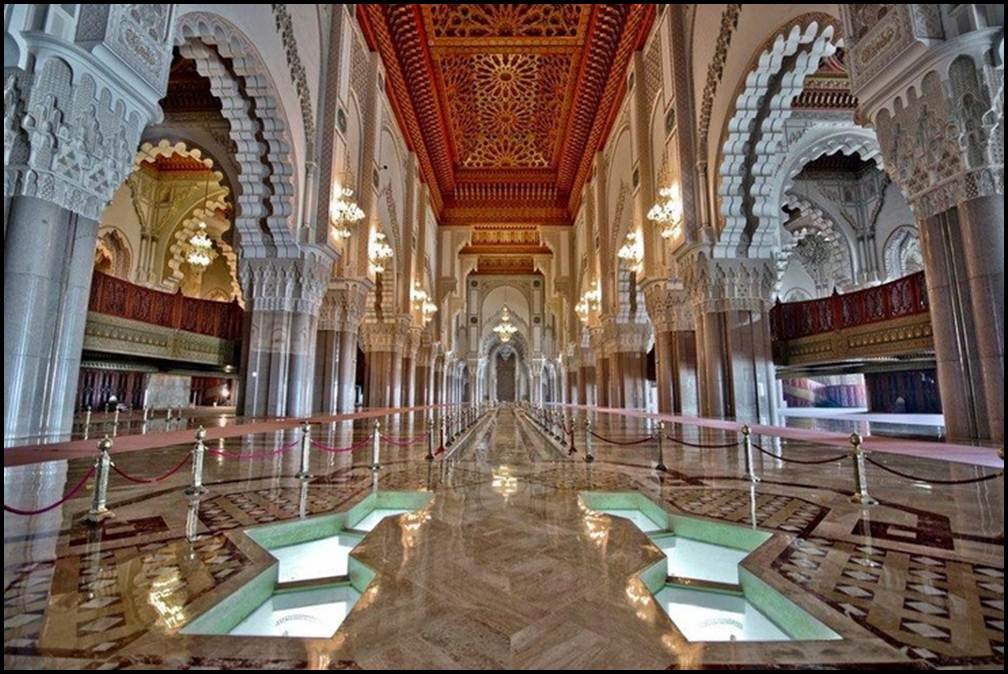
Beyond Worship: A Cultural Tapestry
The Hassan II Mosque transcends its role as a place of worship. It's a vibrant cultural landmark, a symbol of Morocco's commitment to preserving its architectural traditions. It serves as a focal point for spiritual and cultural gatherings, a space where the artistic heritage of Morocco comes alive, showcasing the talents of countless artisans who poured their hearts into its creation.
Read: Masjid al-Quba: The First Mosque of Islam
A Bridge Between Cultures: A Beacon for All
The mosque plays a vital role in fostering cultural tourism, attracting visitors from all walks of life, Muslims and non-Muslims alike. Its grandeur draws them in, but it's the story it tells that truly resonates. It's a story of Morocco's rich history, its enduring cultural heritage, and its unwavering faith. It serves as a bridge between cultures, fostering understanding and appreciation for the beauty of Islamic architecture.
A Legacy That Endures: A Beacon of Inspiration
The Hassan II Mosque stands as a dazzling jewel in the crown of Islamic architecture. It's a powerful symbol of faith, a beacon that illuminates the Moroccan coastline. It embodies the country's past, its vibrant present, and its promising future. Here, amidst the intricate details and innovative design, tradition seamlessly blends with modernity. Every element, from the towering minaret to the mesmerizing mosaics, whispers a tale of devotion, artistry, and national pride.
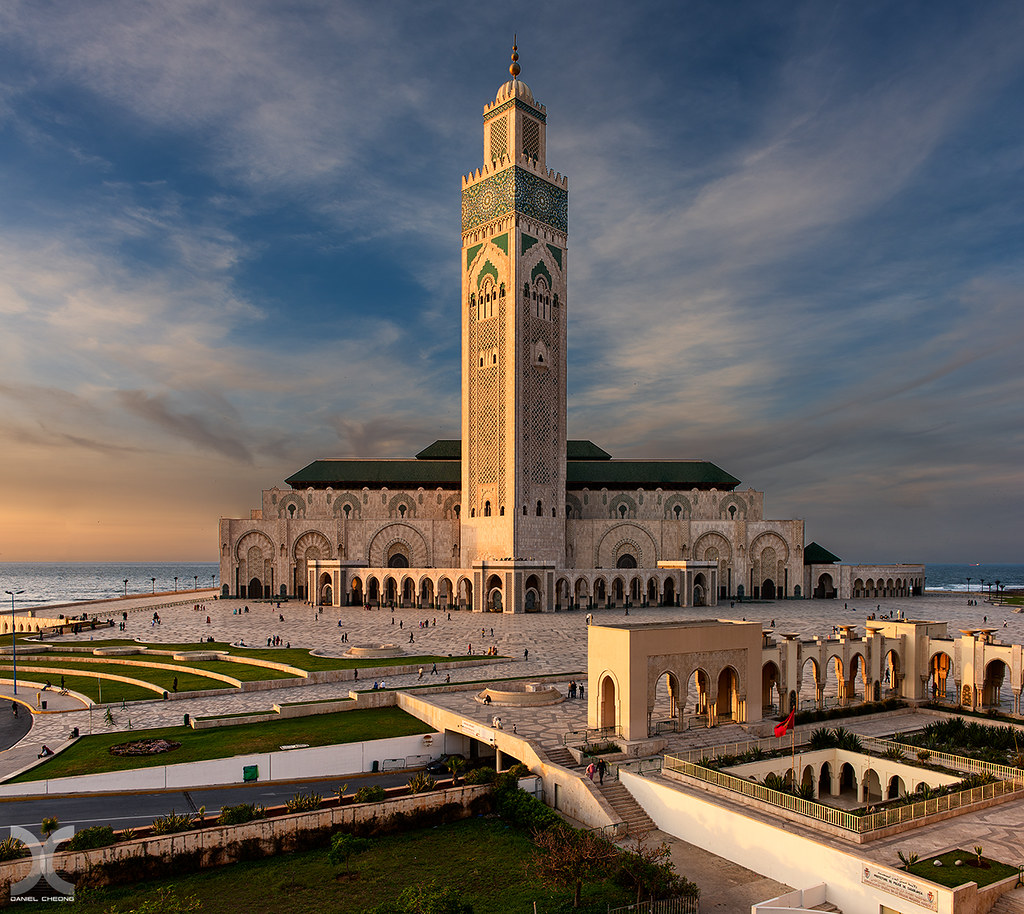
As Morocco navigates the ever-changing tides of progress, the Hassan II Mosque remains a constant, a powerful reminder of the enduring strength of faith and the unifying spirit of cultural heritage. It's an invitation – a call to believers and visitors alike – to contemplate the wonders of creation, delve into the depths of history, and embrace the potential for harmony between cultures. The Hassan II Mosque is more than just a structure; it's a captivating testament to the human spirit, a place where faith and innovation converge, inspiring awe and fostering understanding for generations to come.
The Making of a Masterpiece
The construction of the Hassan II Mosque was an ambitious endeavor, reflecting the fervor and veneration with which King Hassan II regarded his country's cultural and religious heritage. The mosque was designed to be the most ambitious structure ever built in Morocco, a testament to the country's architectural prowess and the talents of its artisans. The construction process was a massive undertaking, involving the best of the country's artisans and craftsmen, who worked tirelessly to bring the king's vision to life.
Read: Massive Influx of Umrah Visitors Floods Mecca and Madinah during Ramadan
A Testament to Artistry and Craftsmanship
The Hassan II Mosque is a showcase of the finest Moroccan artisanship. Its hand-carved stone and wood, intricate marble flooring and inlay, gilded cedar ceilings, and exquisite geometric mosaic tilework are a testament to the skills and dedication of the artisans who worked on it. The mosque also houses a small museum showcasing the craftwork involved in its construction, further highlighting the artistic heritage of Morocco.
A Symbol of Unity and Tolerance
The Hassan II Mosque is more than just a place of worship. It's a symbol of unity and tolerance, welcoming visitors from all faiths and backgrounds. The mosque's guidelines emphasize respect and modesty, reflecting the values of the Islamic faith. As one of the few mosques in Morocco open to non-Muslims, it plays a crucial role in fostering interfaith dialogue and understanding.
Read: Unveiling the Nasir ol Molk Mosque's Enchantment
A Living Monument
The Hassan II Mosque is a living monument, a testament to Morocco's rich history and vibrant culture. It's a place where the past and the present converge, where tradition meets innovation, and where faith and culture intertwine. As Morocco continues to evolve and progress, the Hassan II Mosque stands as a beacon of the country's enduring spirit, its commitment to its heritage, and its openness to the world.



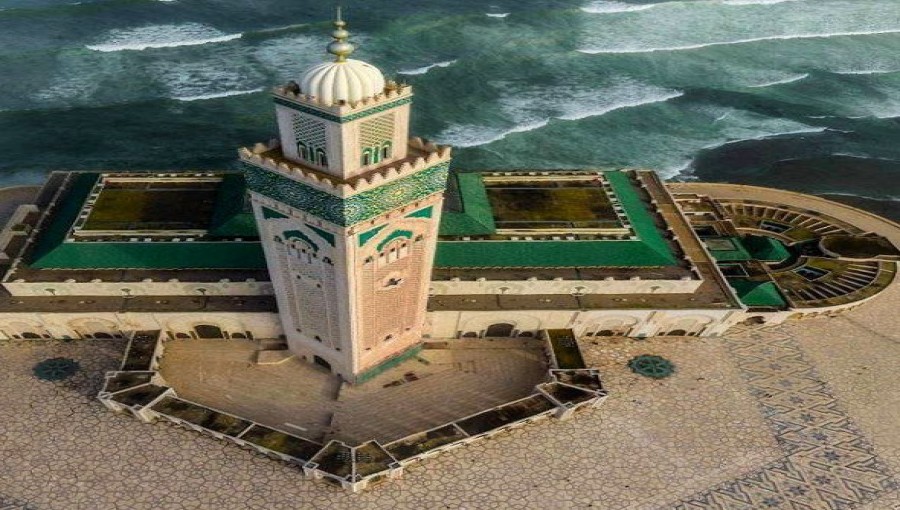



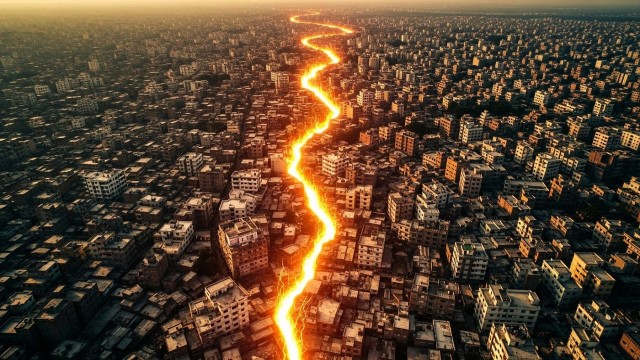


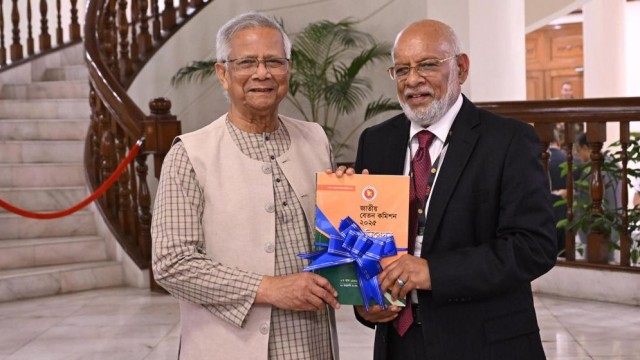






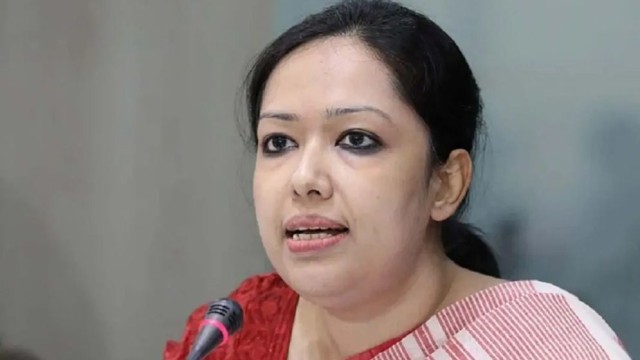













Comment: